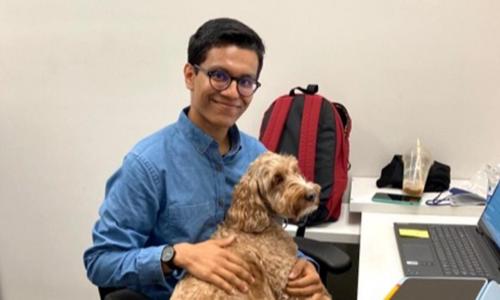
What is your position?
I am a Fire Information Officer for the Wildfire Management Branch. The Branch is under the umbrella of the Ministry of Forests and Range.
Since I work at the Head Quarters, in Victoria, I normally deal with media inquiries that have to do with the province as a whole. When the media only want to hear about a situation in a specific region, I refer them to the Fire Information Officer (IO) assigned to that region. However, since I’m fluent in French, I get to speak on their behalf if Radio-Canada (the CBC in French) or any other Francophone media (from Quebec for instance) want an interview. This morning I did a live interview with Radio-Canada (radio) regarding the wildfire situation in Kelowna and what the situation and risks are like for the rest of the Province.
I also keep our people informed internally by writing reports and newsletters and assisting the Public Affairs Bureau with some of their media inquiries.
Finally, I assist the Fire Information Officer assigned to a specific region. This can be done by updating the website and phone line for them or taking their media calls.
How is your specific position related to the fires in the interior? (i.e. what are you duties and how are those related to the situation?)
When the fire started, last Saturday, I was acting as the Provincial Fire Information Officer, i.e. the first point of contact for the media for provincial matters. I was informed of the situation from the IO over there and communicated what I knew to our people to ensure that everyone, internally, knew what was happening. Then I came in to work to assist the IO who was receiving the updates and taking media calls; I was updating our public website and her phone line. I also arranged to put an information team on standby to ensure we had more information people ready to be deployed to the fires if needed. I thought I was coming in for 30 minutes to 1 hour. I stayed for 5 hours, until 10:30 pm...
On Sunday my phone started ringing at 7:30 am. I re-routed media calls to the Kamloops Fire Centre IO (the Kamloops Fire Centre is the region that covers the interior, hence, Kelowna) and as soon as I got my first update, I communicated it to the rest of our people and came in to update our website, the Kamloops Fire Centre phone line (which is a great tool to inform the public because not everyone has internet access at hand but most people have a phone!), and a report on the provincial situation.
I got to do a live interview with LCN (a 24-hour TV Channel in Quebec) they wanted someone from here to inform them in French; my family and friends back home were quite proud to hear my voice on television!
Monday was spent re-routing media calls to IOs at the Kamloops Fire Centre, digging out information on the 2003 Okanagan Mountain Park Fire for the media and processing ad requests for campfire bans.
Today (Tuesday July 21st) is not as busy but I’ve processed campfire ban ad requests for the whole province and I’ve had two interviews in French with Radio-Canada so far today. I am not the Provincial Fire Information Officer this week (we are 3 fulfilling that role so I do it every 2 weeks).
Is this position confirming or changing your career aspirations? And if so, how?
This is definitely one of the best co-op opportunities in public relations you can imagine. It’s been a fantastic learning experience for me and I feel privileged to work with such an amazing team in the very dynamic environment of emergency communication. I am amazed at how effectively people collaborate together at all levels at the Wildfire Management Branch.
I now have a better understanding of how PR works and of what the professional relationships between journalists and PR specialists are. Being the PR representative in the public or private sector is certainly something I see myself doing after graduating but I hope to gain more experience in that field and perhaps in advertising before the end of my academic career at SFU.















